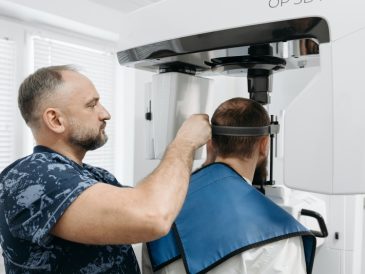Navigating the path to sobriety is a profound and often challenging journey—one that typically begins with a critical phase known as drug and alcohol detoxification. The process can be complex, demanding, and varies for each individual. Understanding what occurs during this crucial period is paramount for those seeking to reclaim their lives from the grips of substance dependency.
Understanding the Detox Process
Detoxification is the body’s natural method of eliminating toxins, including substances such as drugs and alcohol. When an individual has been consistently using these substances, their body becomes accustomed to their presence. Removing these substances initiates a recalibration process in the body, which can lead to a variety of symptoms known as withdrawal.
1. Initial Assessment
The first step in the detoxification journey often involves a comprehensive assessment by medical professionals. These assessments encompass a review of medical history, substance use history, and any co-occurring mental health conditions. It’s a critical phase that helps in tailoring the detox process to the individual’s unique needs.
2. The Phases of Detox
Detoxification generally unfolds in three main phases:
- Evaluation: The detoxification process typically unfolds in three essential phases, beginning with evaluation. During this phase, individuals undergo detailed assessments to establish the level of toxins in their bodies. These assessments inform the development of a personalized detox plan, taking into account the specific substances involved and the individual’s overall health. The goal of this initial stage is to gather crucial information that will guide the subsequent phases of detox.
- Stabilization: Following the evaluation phase, the stabilization stage involves the actual process of detoxification. This is where the body is guided back to a stable state without dependence on substances. Medical professionals closely monitor individuals, providing necessary interventions to manage withdrawal symptoms and ensure a safe and gradual transition. Stabilization is a crucial phase that requires expertise to address the physical and psychological challenges associated with detox, promoting a safer and more comfortable experience for the individual.
- Preparation for Recovery: The final phase of detox sets the groundwork for ongoing treatment, whether in inpatient or outpatient settings. This preparation for recovery involves planning the next steps after detoxification, considering factors such as the individual’s readiness for further treatment, the level of support required, and the most suitable treatment environment. This phase is critical for seamlessly transitioning individuals from detox to the next stages of their recovery journey, promoting continuity of care and support.
3. Withdrawal Symptoms and Management
The heart of detox is managing withdrawal, which can come with a host of symptoms affecting both physical and mental health:
- Physical Symptoms: Withdrawal symptoms manifest on a physical level and can vary widely in intensity. Mild symptoms may include sweating, tremors, and nausea, while severe manifestations can extend to seizures and delirium. The severity and nature of physical symptoms depend on factors such as the substance involved, the duration of use, and individual differences. Proper medical supervision and intervention are crucial during this phase to ensure the safety and well-being of individuals undergoing detox.
- Psychological Symptoms: In addition to physical manifestations, withdrawal often gives rise to psychological symptoms. Anxiety, depression, and intense cravings are common psychological challenges encountered during detox. These symptoms can significantly impact an individual’s mental well-being and pose challenges to the overall recovery process. A comprehensive detoxification program includes psychological support and counseling to address these aspects, promoting a more holistic and effective approach to managing withdrawal and facilitating the transition to sustained recovery.
Medical supervision is crucial, as professionals can administer medication-assisted treatment to ease these symptoms and ensure safety.
4. The Role of Support
Support systems play an integral role during detox. Emotional support from professionals, as well as from family and friends, can significantly influence the detox experience. Support groups and counseling are often woven into the detox process, providing a space for emotional healing and connection.
5. The Importance of a Controlled Environment
Detox often occurs in a controlled environment, such as a residential rehab facility, to minimize the risk of relapse and to manage withdrawal symptoms safely and effectively. A controlled environment not only provides medical oversight but also removes the individual from situations that may trigger use during this vulnerable phase.
6. The Path to Long-term Recovery
Detoxification is merely the start of the road to recovery. Following detox, individuals usually transition to additional forms of care, which may include therapies designed to address the underlying causes of substance abuse and equip individuals with strategies to maintain sobriety.
7. Specialized Treatment Options
For those seeking a comprehensive, nurturing environment for recovery, a facility offering luxury rehab in California may provide an appealing setting. Such centers combine detox with high-end comforts and robust therapeutic programs, catering to those who prefer a retreat-style recovery experience.
8. Relapse and Continuing Care
Relapse shouldn’t be seen as a failure but rather as an obstacle on the path to sustained recovery. Continuing care, including outpatient programs, support groups, and aftercare planning, is essential in fortifying one’s sobriety journey and providing resources and support for the days beyond detox.
The Unique Nature of Every Detox Experience
It’s important to remember that each individual’s experience with drug and alcohol detoxification is unique. Personal health history, the substances used, the duration of use, and individual biology all contribute to the personalized nature of detox.
Conclusion
Drug and alcohol detox is a significant step on the path to recovery, filled with challenges and opportunities for growth. With proper medical care, support, and a commitment to ongoing treatment, individuals can navigate detox successfully and move toward a life free from the hold of substance addiction.


